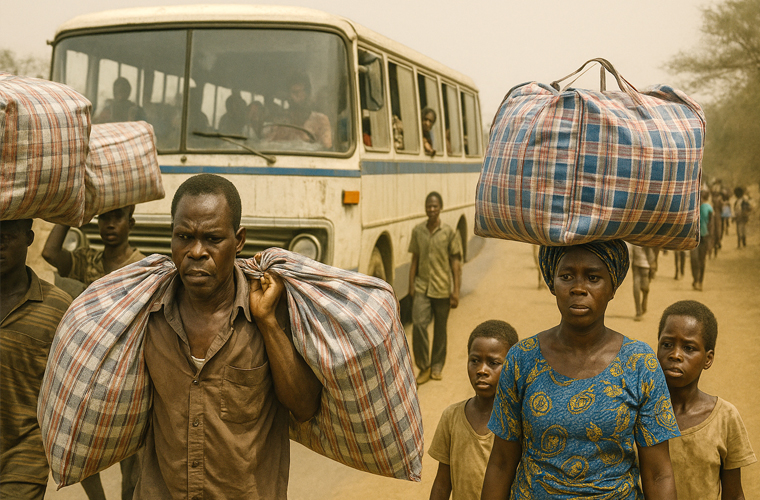During the early months of 1983, a dramatic migration crisis unfolded in West Africa. Nigeria expelled over two million foreigners, including nearly one million Ghanaians. Families who had spent years building lives in Nigeria were thrust into chaos, forced to leave everything behind. The repercussions of this event rippled across the region, fundamentally altering relationships, economies, and the ambitions of those seeking a better future.
Nigeria’s oil boom in the 1970s had drawn people from neighboring nations such as Ghana, Benin, and Togo, eager for prosperity and work. As the country flourished, it became a land of opportunity, welcoming a diverse population that contributed to the dynamic social fabric of Nigerian society. However, by the early 1980s, this prosperity gave way to economic hardship. Unemployment soared, and widespread social unrest took hold. As conditions worsened, foreign workers and their families became scapegoats, unfairly blamed for the country’s mounting problems.
On January 17, 1983, President Shehu Shagari issued an executive order requiring all illegal immigrants to leave Nigeria. The directive was sudden and unforgiving. People raced against time, scrambling to gather their belongings, often packing everything in the iconic checkered woven bags known as “Ghana Must Go.” For many families, these bags contained not only their material possessions but also memories of lives uprooted in desperation and fear.
The mass departure placed immense pressure on Nigeria’s borders and the governments of neighboring countries. Migrants walked for miles, some making the dangerous journey on foot, while others crowded train stations and bus depots. The majority lacked passports, savings, or concrete plans for where to go upon arrival. The humanitarian crisis was staggering. Ghana and other receiving nations struggled to accommodate the influx of returning citizens and migrants, many of whom arrived exhausted and penniless.
International media reported on the scenes of heartbreak and hope: families separated, children crying, border crossings clogged with weary travelers. Local communities faced sudden overpopulation and strains on resources, sparking tensions and new challenges. Diplomatically, the expulsion soured relations between Nigeria and its neighbors, triggering discussions about fair treatment, economic justice, and shared security responsibilities.
The story of “Ghana Must Go” became deeply embedded in West African consciousness. The woven bags themselves are now omnipresent in households across the region—a poignant symbol of migration and resilience. For those who lived through that chapter, the bags and the phrase trigger powerful memories: loss, adaptation, dignity in adversity.
Years later, the events of 1983 are a vital reminder of the importance of compassion, regional collaboration, and prudent economic management. Nigeria’s mass expulsion serves as a cautionary tale for policymakers: the consequences of sudden, sweeping decisions are profound and long-lasting. As migration and mobility continue to shape the continent, the lessons of “Ghana Must Go” echo in debates about identity, belonging, and the fundamental rights of individuals seeking a better life.
For today’s readers, revisiting this history is more than an academic exercise—it offers perspective on the enduring human costs of forced migration, the responsibilities of leadership, and the bonds that unite people across artificial borders. The legacy urges West Africans, and the world, to pursue policies that honor humanity and foster unity even in the face of crisis.

